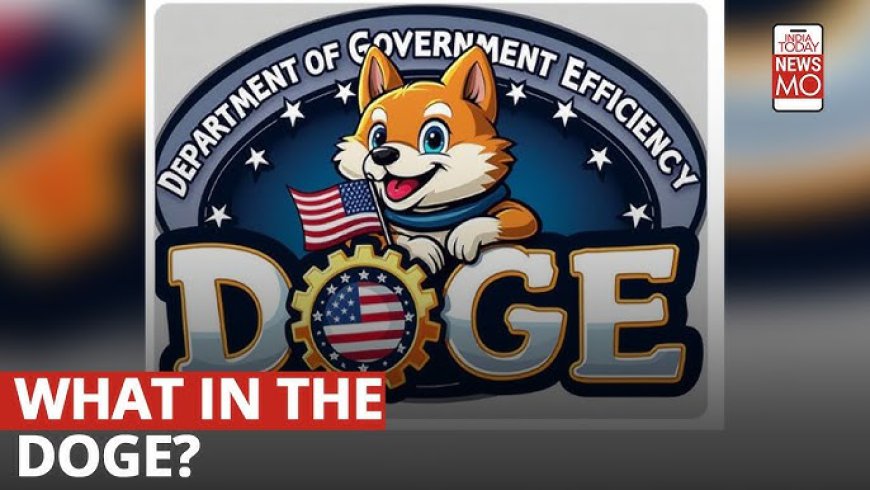The Expiry of DOGE – A Political Gambit or Strategic Reset?

By Khichdi Investigative Correspondent
A recent report by the Economic Times has added a startling twist to the ongoing debate about DOGE—the Department of Government Efficiency. According to the report, former President Trump has stated that DOGE is slated to expire on July 4, 2026. This expiry date, loaded with symbolism and controversy, has reignited claims that DOGE is not merely an administrative initiative but a calculated political maneuver.
A Hidden Expiry Date with Deep Symbolism
The Economic Times article reveals that DOGE carries a hidden expiry date—July 4, 2026—a date that resonates deeply in American culture as Independence Day. Critics argue that this is no coincidence. They claim that the department was set up to underscore the fiscal mismanagement of a previous administration by showcasing its historical overspending, only to be systematically dismantled when it is no longer politically convenient.
According to the report, former President Trump has linked this expiry date to a broader political narrative. The argument goes that by allowing DOGE to "expire," the Republican party can effectively erase the inconvenient record of past fiscal decisions, paving the way for a new era where spending is less constrained by historical accountability.
Political Narrative: From Fiscal Reckoning to Unbridled Spending
Supporters of this perspective suggest that DOGE was introduced as a temporary measure—a tool to highlight the previous party’s missteps in government spending. With the planned termination of DOGE on a day as symbolically potent as July 4, 2026, political strategists claim that the stage is being set for a dramatic policy reset. The idea is that once DOGE is removed, current leaders will have greater freedom to implement new fiscal policies without the burden of past mistakes being continually brought to public attention.
This alleged plan paints a picture of deliberate political theater. It suggests that DOGE’s entire existence is tied to a timeline, one that neatly fits into the narrative of exposing previous overspending and then conveniently erasing it to allow for a fresh start in governance.
Implications for Transparency and Accountability
If these claims hold any truth, the implications for government transparency and accountability could be significant. By establishing an expiry date, detractors argue, the government may be seeking to manipulate public perception—using DOGE as both a reminder of past fiscal irresponsibility and a convenient cover for future spending initiatives that might otherwise draw scrutiny.
Skeptics, however, warn that such a narrative could undermine genuine reform efforts. They argue that if DOGE’s primary purpose is to serve as a political prop, then the promise of improved government efficiency is overshadowed by a strategy designed to obscure fiscal history rather than address it.
A Call for Further Inquiry
While the Economic Times report provides a dramatic insight into the possible political motives behind DOGE’s expiry, definitive evidence remains elusive. As this story unfolds, it is essential for citizens and policymakers alike to scrutinize such claims and demand greater transparency about the objectives behind government initiatives.
The controversy surrounding DOGE serves as a stark reminder of the powerful role that symbolism and timing can play in political strategy. Whether DOGE is ultimately a genuine effort to streamline government operations or a cleverly engineered political ploy will depend on future developments and, crucially, on the willingness of the public to hold their leaders accountable.
Disclaimer: The views expressed in this article are intended to stimulate discussion. Readers are encouraged to consult multiple sources and engage in critical inquiry as more information becomes available.
What's Your Reaction?
 Like
0
Like
0
 Dislike
0
Dislike
0
 Love
0
Love
0
 Funny
0
Funny
0
 Angry
0
Angry
0
 Sad
0
Sad
0
 Wow
0
Wow
0





































































